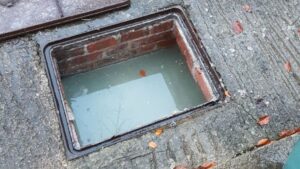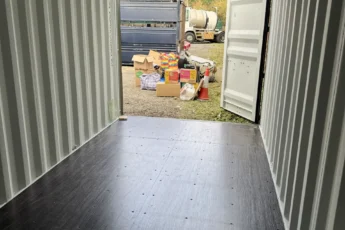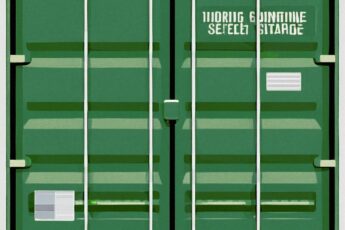Why Interceptor Cleaning Matters
Interceptors (also called grease traps or fuel interceptors) play a vital role in preventing oils, fats, and contaminants from entering the sewer system. For commercial kitchens, industrial facilities, and sites with vehicle wash areas, they are a legal and environmental necessity.
But here’s the big question: how often should you clean your interceptor? The answer isn’t the same for everyone. Frequency depends on your business type, waste load, and compliance obligations. This guide will walk you through everything you need to know—helping you avoid costly blockages, fines, and environmental damage.
Why Regular Interceptor Cleaning Is Essential
Before we get into the “how often”, let’s remind ourselves why it matters:
-
Environmental protection: Stops pollutants from contaminating waterways.
-
Regulatory compliance: Local authorities and environmental agencies require maintenance.
-
Preventing blockages and odours: A neglected interceptor can overflow, leading to foul smells and expensive drain repairs.
-
Avoiding costly downtime: Emergency call-outs disrupt operations and cost far more than planned maintenance.
Key Factors That Influence Cleaning Frequency
There’s no universal rule—several factors determine how often you should schedule cleaning:
1. Business Type and Waste Profile
-
Restaurants and food service businesses generate large amounts of grease and food particles—these interceptors usually need cleaning every 6–12 weeks.
-
Vehicle wash bays or transport depots accumulate oils, silt, and fuel residues, often requiring cleaning every 3–6 months.
-
Industrial sites with high-volume wastewater flows might need monthly inspections with cleaning scheduled accordingly.
2. Interceptor Size and Design
Smaller interceptors fill up faster. If yours is undersized for the waste load, you’ll need more frequent maintenance to prevent overflow.
3. Usage Levels
Is your site seasonal, or does it operate at full capacity all year round? Peak trading periods often require increased cleaning schedules.
4. Local Regulations
Different local authorities have specific requirements for interceptor maintenance. Ignoring these can result in fines or even site shutdowns.
Industry Best Practice: The 25% Rule
One widely accepted guideline is the 25% rule:
When the interceptor is 25% full of grease, oil, or solids, it needs cleaning.
Leaving it beyond this point increases the risk of blockages and compliance breaches. For most businesses, that means:
-
Busy kitchens: every 1–2 months
-
Moderate-use facilities: every 3 months
-
Low-volume sites: up to 6 months
 Signs Your Interceptor Needs Cleaning Sooner
Signs Your Interceptor Needs Cleaning Sooner
Even with a schedule in place, things can change. Watch for these warning signs:
-
Strong, unpleasant odours around drains or the interceptor area
-
Slow-draining sinks or gullies
-
Visible grease or oil on water surfaces
-
Overflow or backups in the drainage system
If you notice any of these, don’t wait for your next scheduled clean—call a professional immediately.
The Cost of Neglect
Skipping or delaying interceptor cleaning can lead to serious—and expensive—problems:
-
Drain blockages and flooding that halt operations
-
Emergency call-out charges far higher than planned maintenance
-
Environmental fines for pollution incidents
-
Damage to reputation if contamination reaches public waterways
How to Create a Maintenance Schedule
The most effective approach is to combine planned maintenance with periodic inspections. Here’s how:
-
Assess your current waste output (volume, type of waste, peak times).
-
Consult with a specialist provider like William Gilder Group for an initial inspection.
-
Set an appropriate interval—typically every 6–12 weeks for food businesses, 3–6 months for transport or industrial sites.
-
Review annually and adjust based on usage trends.
Why Partner with William Gilder Group?
At WGG, we understand that compliance and efficiency are top priorities for your business. Our interceptor cleaning service includes:
-
Planned maintenance contracts tailored to your site needs
-
CCTV drain inspections for early detection of problems
-
High-pressure jetting for thorough cleaning
-
Fully licensed waste disposal for environmental compliance
-
24/7 emergency support when you need it most
We operate across Gloucestershire and the wider UK, providing reliable and cost-effective solutions for businesses of all sizes.
Frequently Asked Questions
How often should a fuel interceptor be cleaned?
For most forecourts and wash bays, every 3–6 months, depending on usage.
Do local authorities check interceptor maintenance records?
Yes. Environmental officers often request service records during inspections, so keeping documentation is essential.
What happens to the waste removed from interceptors?
All waste is transported to licensed treatment facilities for recycling or safe disposal, in line with UK environmental regulations.
Final Thoughts
Interceptor cleaning isn’t just a box to tick—it’s a critical part of responsible site management. By understanding your usage and implementing a regular cleaning schedule, you’ll avoid costly repairs, stay compliant, and protect the environment.
Need expert advice? Contact William Gilder Group today to arrange a site survey or set up a maintenance contract that keeps your business running smoothly.







